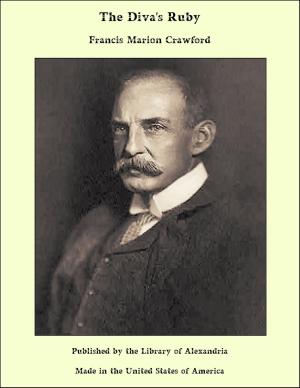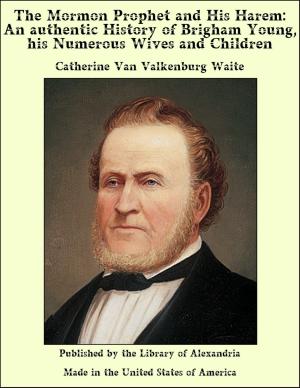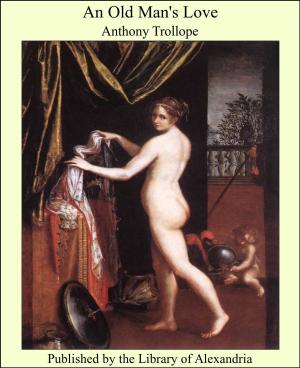Protestantism and Catholicity: Compared in their Effects on the Civilization of Europe
Nonfiction, Religion & Spirituality, New Age, History, Fiction & Literature| Author: | Jaime Luciano Balmes | ISBN: | 9781465605184 |
| Publisher: | Library of Alexandria | Publication: | March 8, 2015 |
| Imprint: | Language: | English |
| Author: | Jaime Luciano Balmes |
| ISBN: | 9781465605184 |
| Publisher: | Library of Alexandria |
| Publication: | March 8, 2015 |
| Imprint: | |
| Language: | English |
There is a fact in existence among civilized nations, very important on account of the nature of the things which it affects—a fact of transcendent importance, on account of the number, variety, and consequence of its influences—a fact extremely interesting, because it is connected with the principal events of modern history. This fact is Protestantism. Like a clap of thunder, it attracted at once the attention of all Europe; on one side it spread alarm, and on the other excited the most lively sympathy: it grew so rapidly, that its adversaries had not time to strangle it in its cradle. Scarcely had it begun to exist, and already all hope of stopping, or even restraining it, was gone; when, emboldened by being treated with respect and consideration, it became every day more daring; if exasperated by rigour, it openly resisted measures of coercion, or redoubled and concentrated its forces, to make more vigorous attacks. Discussions, the profound investigations and scientific methods which were used in combating it, contributed to develop the spirit of inquiry, and served as vehicles to propagate its ideas. By creating new and prevailing interests, it made itself powerful protectors; by throwing all the passions into a state of fury, it aroused them in its favor. It availed itself, by turns, of stratagem, force, seduction, or violence, according to the exigencies of times and circumstances. It attempted to make its way in all directions; either destroying impediments, or taking advantage of them, if they were capable of being turned to account. When introduced into a country, it never rested until it had obtained guarantees for its continued existence; and it succeeded in doing so everywhere. After having obtained vast establishments in Europe—which it still retains—it was transported into other parts of the world, and infused into the veins of simple and unsuspecting nations. In order to appreciate a fact at its just value, to embrace it in all its relations, and to distinguish properly between them, it is necessary to examine whether the constituting principle of the fact can be ascertained, or at least whether we can observe in its appearance any characteristic trait capable of revealing its inward nature. This examination is very difficult when we have to do with a fact of the kind and importance of that which now occupies our attention. In matters of this sort, numbers of opinions accumulate in the course of time, in favor of all which arguments have been sought. The inquirer, in the midst of so many and such various objects, is perplexed, disconcerted, and confounded; and if he wish to place himself in a more advantageous point of view, he finds the ground so covered with fragments, that he cannot make his way without risk of losing himself at every step. The first glance which we give to Protestantism, whether we consider its actual condition, or whether we regard the various phases of its history, shows us that it is very difficult to find any thing constant in it, any thing which can be assigned as its constituent character. Uncertain in its opinions, it modifies them continually, and changes them in a thousand ways. Vague in its tendencies, and fluctuating in its desires, it attempts every form, and essays every road. It can never attain to a well-defined existence; and we see it every moment enter new paths, to lose itself in new labyrinths.
There is a fact in existence among civilized nations, very important on account of the nature of the things which it affects—a fact of transcendent importance, on account of the number, variety, and consequence of its influences—a fact extremely interesting, because it is connected with the principal events of modern history. This fact is Protestantism. Like a clap of thunder, it attracted at once the attention of all Europe; on one side it spread alarm, and on the other excited the most lively sympathy: it grew so rapidly, that its adversaries had not time to strangle it in its cradle. Scarcely had it begun to exist, and already all hope of stopping, or even restraining it, was gone; when, emboldened by being treated with respect and consideration, it became every day more daring; if exasperated by rigour, it openly resisted measures of coercion, or redoubled and concentrated its forces, to make more vigorous attacks. Discussions, the profound investigations and scientific methods which were used in combating it, contributed to develop the spirit of inquiry, and served as vehicles to propagate its ideas. By creating new and prevailing interests, it made itself powerful protectors; by throwing all the passions into a state of fury, it aroused them in its favor. It availed itself, by turns, of stratagem, force, seduction, or violence, according to the exigencies of times and circumstances. It attempted to make its way in all directions; either destroying impediments, or taking advantage of them, if they were capable of being turned to account. When introduced into a country, it never rested until it had obtained guarantees for its continued existence; and it succeeded in doing so everywhere. After having obtained vast establishments in Europe—which it still retains—it was transported into other parts of the world, and infused into the veins of simple and unsuspecting nations. In order to appreciate a fact at its just value, to embrace it in all its relations, and to distinguish properly between them, it is necessary to examine whether the constituting principle of the fact can be ascertained, or at least whether we can observe in its appearance any characteristic trait capable of revealing its inward nature. This examination is very difficult when we have to do with a fact of the kind and importance of that which now occupies our attention. In matters of this sort, numbers of opinions accumulate in the course of time, in favor of all which arguments have been sought. The inquirer, in the midst of so many and such various objects, is perplexed, disconcerted, and confounded; and if he wish to place himself in a more advantageous point of view, he finds the ground so covered with fragments, that he cannot make his way without risk of losing himself at every step. The first glance which we give to Protestantism, whether we consider its actual condition, or whether we regard the various phases of its history, shows us that it is very difficult to find any thing constant in it, any thing which can be assigned as its constituent character. Uncertain in its opinions, it modifies them continually, and changes them in a thousand ways. Vague in its tendencies, and fluctuating in its desires, it attempts every form, and essays every road. It can never attain to a well-defined existence; and we see it every moment enter new paths, to lose itself in new labyrinths.















